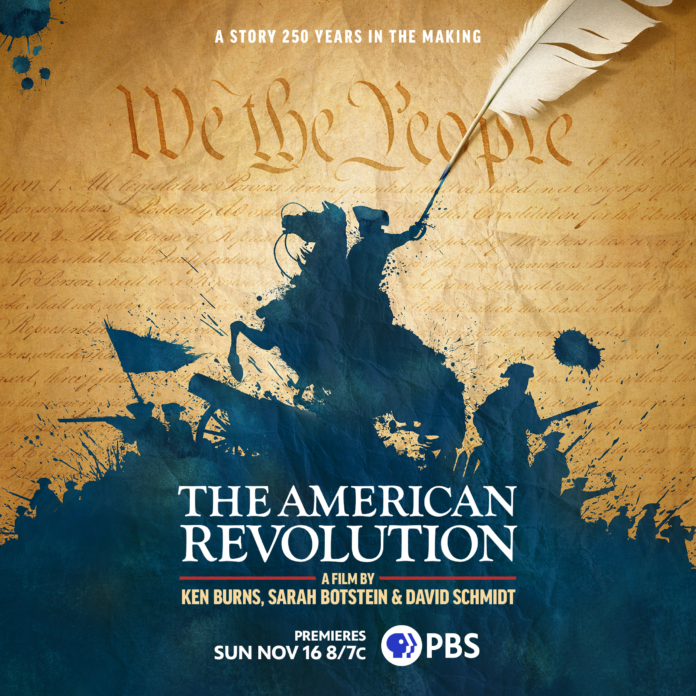This fall, celebrated filmmaker Ken Burns will turn his lens toward one of the most pivotal chapters in American history. His upcoming six-part, 12-hour documentary series, The American Revolution, premieres on PBS on Sunday, November 16, 2025, and will run for six consecutive nights. Co-directed with Sarah Botstein and David Schmidt, the sweeping project explores the war that Burns himself has called the most important work of his career.
Burns describes the Revolution as both a civil war and a world war, one that forever transformed the idea of what it meant to be a citizen rather than a subject. By grounding the story in human drama—letters, diaries, and firsthand accounts—the series aims to put a deeply personal lens on the lives of enslaved and free African Americans, Native Americans, women, Loyalists, and everyday soldiers who experienced the upheaval firsthand. At the same time, the documentary will frame the conflict within its global context, showing how a colonial rebellion quickly escalated into a world war involving more than two dozen nations.
For New Jersey, this documentary holds particular significance. The state is often called the “Crossroads of the American Revolution” because more battles and skirmishes were fought here than in any other colony. New Jersey’s geography placed it at the center of military strategy, and its towns, rivers, and landscapes were the backdrop for some of the most decisive moments of the war. Given that history, New Jersey is expected to feature prominently in Burns’ storytelling.
Several filming sites within the Garden State have already been confirmed. In Mount Holly, Burns’ crew spent time at the Old Schoolhouse, built in 1759, which will appear in Episode 4 and highlight the importance of education to the colonists. Morristown National Historical Park, where the Continental Army endured its harsh winter encampments in 1777 and again in 1779–80, will provide a vivid sense of the endurance and sacrifice required of Washington’s troops. Filming also took place at Sandy Hook, where the coastal terrain plays into the larger story of naval operations and maritime strategy.
Beyond these, numerous other New Jersey locations are almost certain to appear. Trenton, for example, was the stage for the “Ten Crucial Days” that helped turn the tide of the war. Washington’s legendary Christmas night crossing of the Delaware is preserved at Washington Crossing State Park, while the Old Barracks Museum and Trenton Battle Monument highlight the city’s decisive role in the fight for independence. Just days after Trenton, the Continental Army secured another victory at Princeton Battlefield State Park, with nearby Nassau Hall standing as a witness to the battle’s climax.
Other key New Jersey battlegrounds are also likely to be featured. Monmouth Battlefield State Park marks the site of the June 1778 clash where American troops demonstrated new levels of discipline and training. Fort Lee Historic Park tells the story of the army’s desperate retreat in the fall of 1776, while Red Bank Battlefield Park preserves Fort Mercer, where colonial forces defeated a Hessian assault in October 1777. The Indian King Tavern Museum in Haddonfield, where New Jersey officially declared itself a state in 1777, and the Proprietary House in Perth Amboy, where Royal Governor William Franklin was arrested, further anchor the state’s Revolutionary War legacy.
Ken Burns’ ability to weave the grand sweep of history with intimate personal stories suggests that viewers will come away with a renewed sense of how profoundly the Revolution reshaped lives in New Jersey and across the colonies. His films have always carried an emotional weight that makes history feel alive, and with The American Revolution, he seeks to remind audiences that these events were not inevitable—they were decided by individuals whose choices, sacrifices, and contradictions continue to resonate today.
The project also highlights New Jersey’s broader role as a cultural and historical center. From its colonial heritage to its modern-day influence on film, television, and the arts, the Garden State has long been a stage for both history and storytelling. To explore more about how New Jersey continues to intersect with the screen, visit the Explore New Jersey film and TV section.
When The American Revolution airs this November, it will not only bring a defining era of American history back into the national conversation but also shine a spotlight on New Jersey’s lasting importance in the story of independence. For residents and history enthusiasts alike, the documentary promises to be both a tribute and a reminder that the struggle for liberty was fought—and in many ways won—on New Jersey soil.












